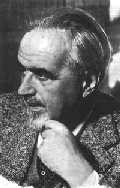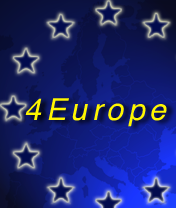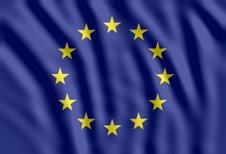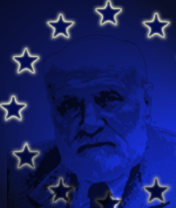
ЛИСАБОНСКИОТ ДОГОВОР
И НАДВОРЕШНО - ПОЛИТИЧКИОТ ИДЕНТИТЕТ НА УНИЈАТА
Лисабонскиот договор е склучен на 13 декември 2007 година, во главниот град на Португалија, Лисабон. Со склучувањето на овој т.н. “Реформски договор”, се прави значаен, фундаментален исчекор напред во поглед на политичкото интегрирање на ЕУ и втемелувањето на нејзиниот надворешно – политички идентитет.
Неговото значење, произлегува токму од институционално – политичката определба на државите – членки, за санација и консолидација на демократскиот дефицит и кризата на идентитетот на Унијата, во која таа се затекна по “падот” на европскиот устав. Таа ситуација отвори многу прашања, што се однесува на тоа како понатаму ќе се развива Унијата и дали таа ќе биде способна да “се конституира како функционална политичка / надворешно – политичка унија”.[1]
Таквата определба на Унијата, преку овој договор прави “сизифовски напори” за нејзино конституирање во политичка унија, а паралелно со тоа и втемелување на нејзиниот надворешно – политички идентитет.
- Значењето на надворешно – политичкиот идентитет за ЕУ. Според тоа, се поставува прашањето, зошто е важен надворешно – политичкиот идентитет на Унијата?
Затоа што, во услови на интензивна, центрифугална европска интеграција, интензивна и тензична глобализација, поттикнувана од униполаризмот на САД, како и ноторниот предизвик на мултиполаризмот, “ЕУ ќе мора [да се подготви] да застане на свои нозе, доколку сака да продолжи да чекори понатаму”.[2] Втемелувањето на нејзиниот надворешно – политички идентитет, значи битно редефинирање и концептуализирање на нејзината “надворешна слика” односно битна реконцептуализација на европската препознатливост, засебност и единственост, во водењето на надворешната политика и нејзиното присуство на светската политичка сцена. Сето тоа подразбира:
дефинирање на унијата како политичка унија со свој оригинален надворешно – политички идентитет, опозитен на надворешно – политичкиот идентитет и интереси на останатите глобални играчи, пред се САД.[3]
Во контекст на тоа, битно е да се нагласи дека, дефинирањето на надворешно – политичкиот идентитет на Унијата, истовремено не значи и негативно опонирање кон веќе етаблираните големи сили и единствената светска супер – сила, САД. Концептуализирањето на “опозитен” надворешно – политички идентитет, во контекст на конкретниот труд, подразбира изнаоѓање на соодветни институционално - политички механизми од страна на Унијата, со цел свое автономно, засебно и независно, а истовремено неконфликтно и конструктивно дефинирање и втемелување на својот надворешно – политички идентитет.
Втемелувањето на еден политички идентитет / надворешно - политички идентитет, не претставува ipso facto противење или конфронтирање со друг, веќе етаблиран политички субјект. Констатацијата донесена врз основа на “конфликтното” стојалиште за формирање на идентитети, само би ја потврдило Шмитовата “теорија на конфликтност”, која во рамките на својот философски дискурс, тргнува од тоа дека: “Омразата кон другите, е неопходна за создавање на солидарност во хомогеното ЈАС”.[4] Што се однесува до Унијата и нејзината специфична генеалошка природа, оваа теорија се чини како несоодветна. Затоа што, изградбата на политичкиот идентитет / надворешно - политичкиот идентитет на Унијата, уште од самиот свој почеток, се продуцира и развива во едни други и поинакви услови. Услови во кои соработката, почитувањето и интеграцијата, претставуваат sine qua non за нејзино функционирање и комуникација со меѓународната средина. Во таа насока, уште од самиот свој почеток, Унијата ги прокламира своите фундаментални вредности, опозитни на омразата, конфронтацијата и дискриминацијата. Додека пак, формирањето на таков “опозитен” надворешно – политички идентитет на Унијата во однос на САД и другите потенцијални глобални играчи односно Русија, Кина, Бразил, Индија и сл. би можело да се аспектира низ призмата на аксиолошката рамка на надворешната политика на Унијата, која ионака е “опозитна” во однос на аксиолошката рамка на надворешната политика на претходно наведените политички субјекти. Еклатантен пример за тоа, претставува афирмацијата на т.н. “десет заповеди на ЕУ”, кои во себе ги стипулираат фундаменталните, цивилизациски вредности на човештвото, како што се: демократијата, човековите права и слободи, социјалната правда, одбивноста кон национализмот и милитаризмот и.т.н.
НАПОМЕНА: ЗА ПОНАТАМОШНО ЧИТАЊЕ Е ПОТРЕБНА ДОЗВОЛА ОД АВТОРОТ.































![The first anti-visa street campaign in Macedonia, Bitola: 13 october 2006 [posters]:](http://photos1.blogger.com/x/blogger2/2890/390186873737650/226/z/666164/gse_multipart44564.jpg)






